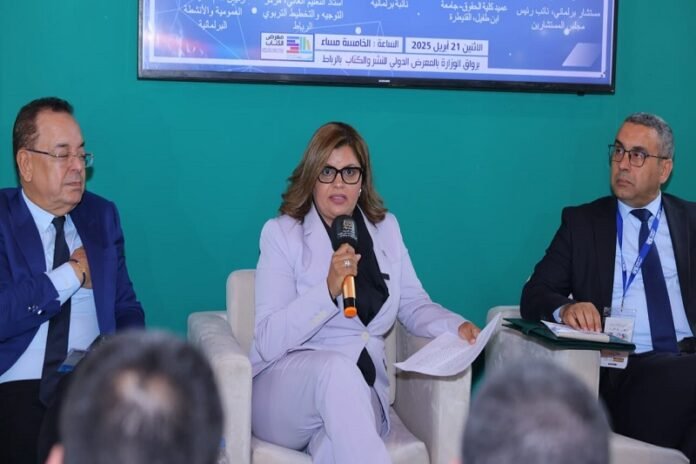An investigation into the failures of public policies towards the Moroccan diaspora, and a call for representative justice and activation of constitutional rights.
During a round table organized on April 21 at the International Book and Publishing Fair in Rabat, Member of Parliament Aïcha El Karji, from the Socialist Union of Popular Forces party, raised an alarm regarding the state of public policies aimed at Moroccans living abroad (MRE). According to her, these policies remain marginalized, lacking legislative boldness and, above all, the political will necessary to respond to the constitutional rights and legitimate aspirations of this vital segment of the nation.
But why does this disinterest persist towards more than six million Moroccans abroad? Is it simply a matter of administrative negligence, or is it a real fear of their competence and their potential influence on the political and economic choices of the country?
The MRE Dossier: A Strategic Issue Ignored
In her speech, El Karji stated that the issue of Moroccans abroad is not a secondary file. It is a strategic matter that touches the very heart of democracy, territorial justice, and national dignity. The shift from the term “Moroccan community abroad” to “essential component of the national fabric”, as enshrined in the 2011 Constitution, has not been followed by concrete implementation.
How can we explain that this constitutional transformation has remained a dead letter?
The MP deplored the lack of effective integration of MREs in all stages of public policy – from diagnosis to evaluation – stressing the need to give them a voice in defining national priorities.
A Derisory Institutional Representation
With only three female MPs representing the entire Moroccan diaspora in a Parliament of 395 members, the disproportion is glaring. El Karji calls for a real parliamentary representation for MREs, proposing a minimum quota of 31 seats to ensure their direct involvement in legislation and government oversight.
Why such resistance to giving them a fair place in institutions?
She also emphasized the urgency of reactivating the Council of the Moroccan Community Abroad, which has been frozen for years, and the establishment of the Mohammedan Institution for Moroccans Abroad, whose inertia reflects the lack of governmental commitment to this cause.
The Need for Scientific and Digital Governance
El Karji recalled that effective policies must be based on rigorous diagnostics and concrete data – not on intentions or speeches. She advocated for the implementation of intelligent digital platforms, allowing a continuous link with MREs, attentive listening to their grievances, and valorization of their proposals.
What are we waiting for to use digital tools to bring institutions closer to citizens abroad?
Government Silence and Lack of Evaluation
Drawing from her parliamentary experience, the MP revealed that she had submitted more than 167 parliamentary questions, over fifty of which directly concerned the diaspora. Yet, government responses are often absent, evasive, or without follow-up.
Finally, she denounced the fact that issues relating to MREs are completely absent from institutional evaluations of public policies, calling for the creation of an independent digital system to monitor government performance, specifically focused on the diaspora.
Conclusion: A National Emergency
For El Karji, the integration of MREs in decision-making processes is no longer a political luxury, but a national necessity. She concluded:
“There is no future for the nation without the inclusion of all its components. Moroccans abroad are not on the sidelines – they are at the heart of the national project.”




